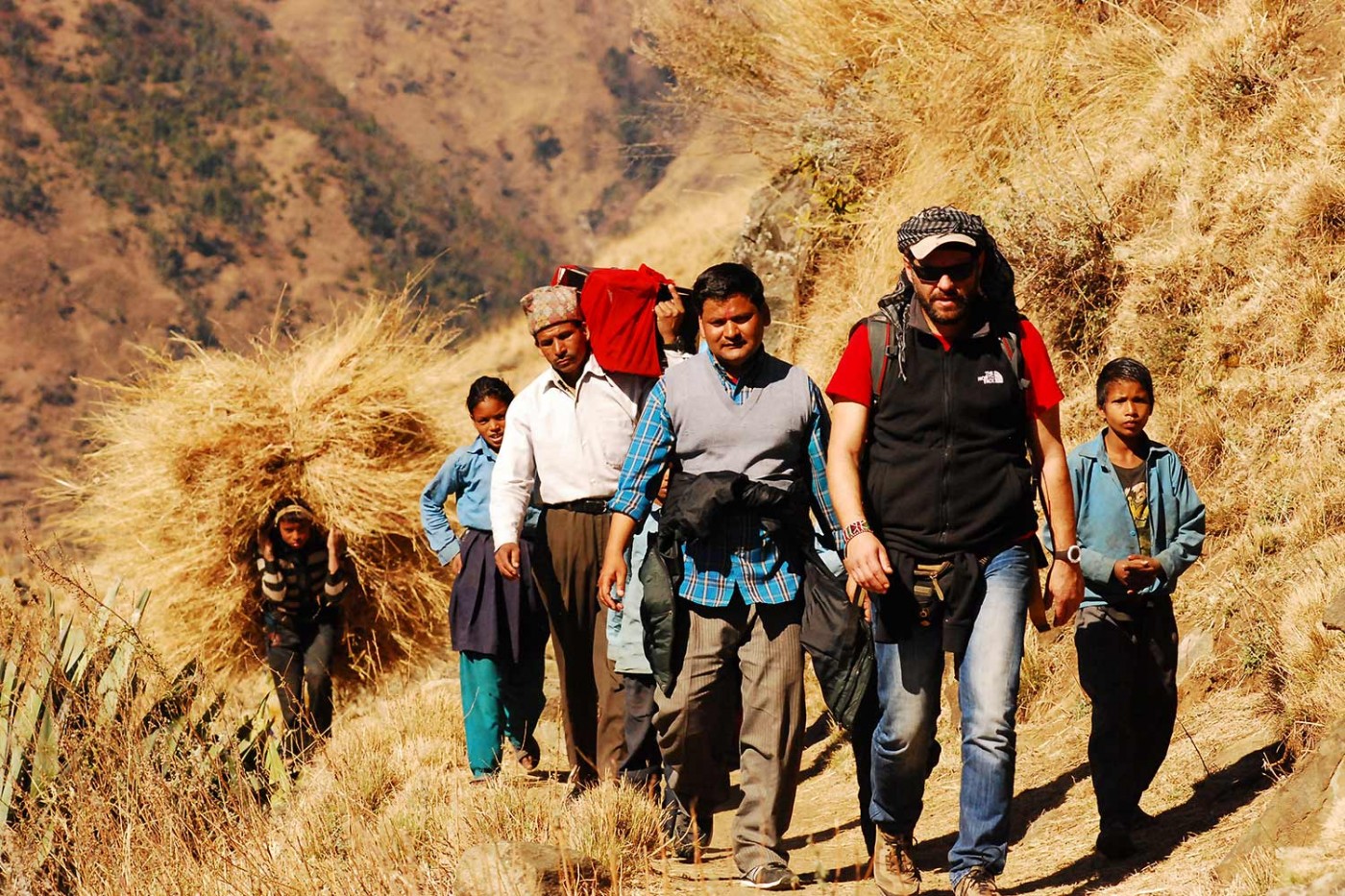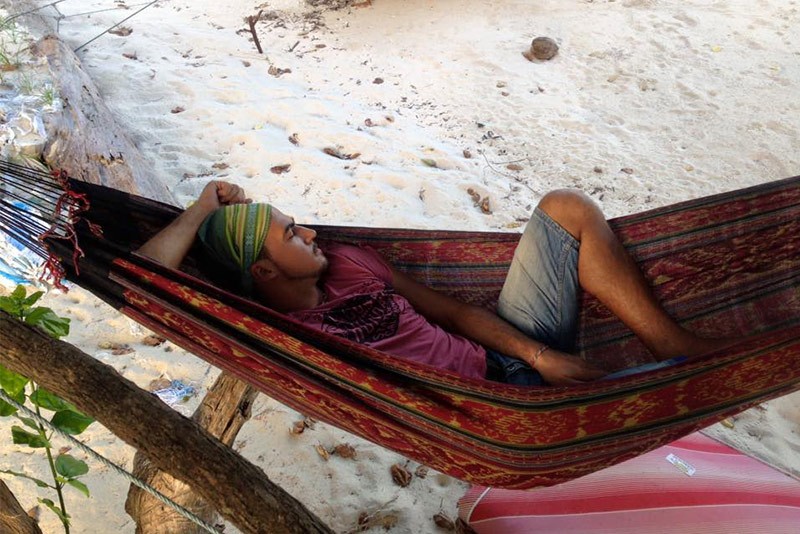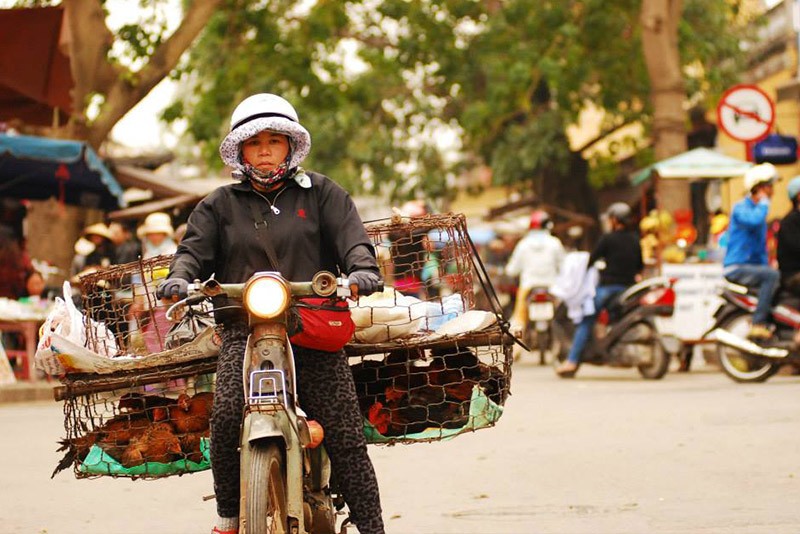Travelling, Couchsurfing and Taking Risks
“Take risks, but don’t be stupid.”
These were the wise words that stuck with me after a lengthy conversation with Georgios Donios, APAC Commodity Director of NCR Corporation, over coffee.
The 38-year-old Greek, who prefers to go by Jorge, has been to nearly 30 countries with many repeat visits to his favourite destinations—one of them includes Vietnam, where the coffee aficionado frequents to get his coffee beans.
To Jorge, travelling is the best form of education as it widens his perspective on life. “When I first came to Singapore 4 years ago, I was so surprised to see a mosque next to a church, and right next to the church is a temple. Having places of worship in such close proximity is not common in Europe, and I appreciate the cultural diversity here.”
Despite his avid travelling, he laments that his country’s reputation as one of the most beautiful destinations in the world means that Greeks do not travel enough. Hence, he intends to write a book detailing his travels to inspire his fellow countrymen to explore beyond Greece’s pristine beaches and mysterious ruins. Occasionally, Jorge also hosts couchsurfers in his apartment, and shows them around Singapore.
****
HNW: When did you start hosting couchsurfers?
GEORGIOS DONIOS: In 2012, while I was living in Barcelona, Spain. Like Greece, Barcelona is a vibrant and highly-desired tourist destination, but the accommodation there costs a bomb.
Weren’t you afraid that letting someone into your home would be potentially dangerous?
Actually, I never had a bad experience hosting someone, that’s because I screen the person before I agree to host them. For example, I will check if they have a photo of themselves or if they have positive recommendations from previous hosts. I will also talk to them to see if we get along; it’s very important to communicate with the person before you host them. A lot of couchsurfers and hosts don’t do that, and they find themselves in less than ideal situations, where the host might suddenly enforce a house rule that wasn’t previously discussed—like make a claim that their house has a “no clothes policy” or things like that. So, a good tip is to discuss house rules beforehand to avoid any misunderstanding
What happens when you host a couchsurfer?
If I am free, I will usually bring them out for food and drinks during their first night. A lot of couchsurfers I host, are huge foodies, and I think the best place in Singapore for them to visit is hawker centres. The first time I came to Singapore, I went to the Old Airport Road Food Centre. The atmosphere was so different from what I was used to. For one, in Europe, we usually avoid queuing for food. But it’s so different here. People willingly wait in queues for half an hour and ‘chope’ seats with tissue packets and umbrellas. There is just so much food, and I love it.
Was there anything you didn’t like?
I guess I will never eat chicken feet or durians.
Do you couchsurf yourself?
No. I usually do homestays. I don’t normally plan a lot before travelling. I prefer to fly to my destination, get a map and a cup of coffee at a coffeehouse, and ascertain if I like the place. If I do, I’ll find an accommodation or homestay with the locals. If not, I will move on.
What if you can’t find any accommodation?
I always travel with my hammock, so that is my backup plan.
Why do you host couchsurfers?
Couchsurfing creates a community of travellers. If I ever visit the country of someone whom I have hosted before, they can show me the local experience there. Some of them cook dinner as an act of appreciation and it’s nice to try out a delicious home-cooked meal.
Why is travelling a good form of education?
Travelling changes your perspective on life, and you gain an appreciation for the things back home. At the MRT station near my place, there used to be an old uncle selling tissue packets by the exit. As you leave the station, you can hear him sing his little jingle, ‘Tissue paper, tissue paper’. It’s quaint little things like that, which you learn to appreciate after travelling. Also, travelling in Asia teaches you how to negotiate. If you can come out of Vietnam without getting ripped off, you are ready to negotiate any contract. In my line of work, I have to negotiate contracts daily with people around the region, so travelling has helped me understand the cultural differences between different nationalities and it has helped a lot.
What is one of the most memorable souvenirs you have from travelling?
An old, dented cigarette holder. I was in Bintan for a getaway and it was so hot and humid when I landed. I wasn’t in a good mood and on top of that, the aircon in the car wasn’t working. I snapped and started cursing and swearing in Greek. All of a sudden, I heard someone asking me to relax and calm down for a bit—in Greek! I thought I was imagining things, so I ignored the remark and continued swearing. Then, I felt a tap on my shoulder from an old Indonesian man who repeated in Greek, “Calm down.” As it turned out, he used to be a sailor and one of the Greek crew members had taught him the language. We started talking and he offered me a cigarette. In exchange, I gave him a bar of Greek chocolate. It was a small gesture, but when he saw it, he teared up. Before we parted, he gave me his cigarette holder and said, “This is for the chocolates.” It looked old and worn-out, but that is one of my most precious souvenirs.
What is one thing you always do while travelling?
Have a set of rules that you stick to. For me, I try to eat where the locals go because they know what’s best. If there is no one patronising the stall, then you know it is probably not that good. I will also try to pick up a few phrases of the native language—the least you can do is learn how to say thank you.
Any wisdom to impart to travellers?
Learn how to face your fears. I tried skydiving in December last year and the person who is about to jump off the plane and the person on the ground are two different people. I used to have acrophobia, where I would freeze if I am standing at the edge of a tall building even though it is completely safe. After skydiving, my fears are gone. It’s all in your head.




